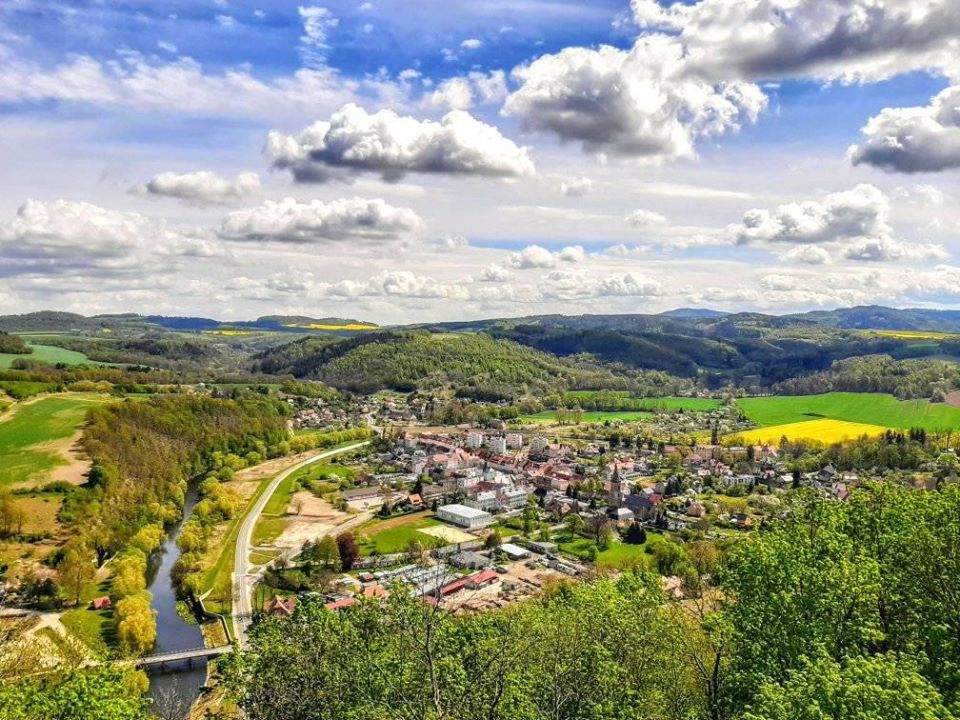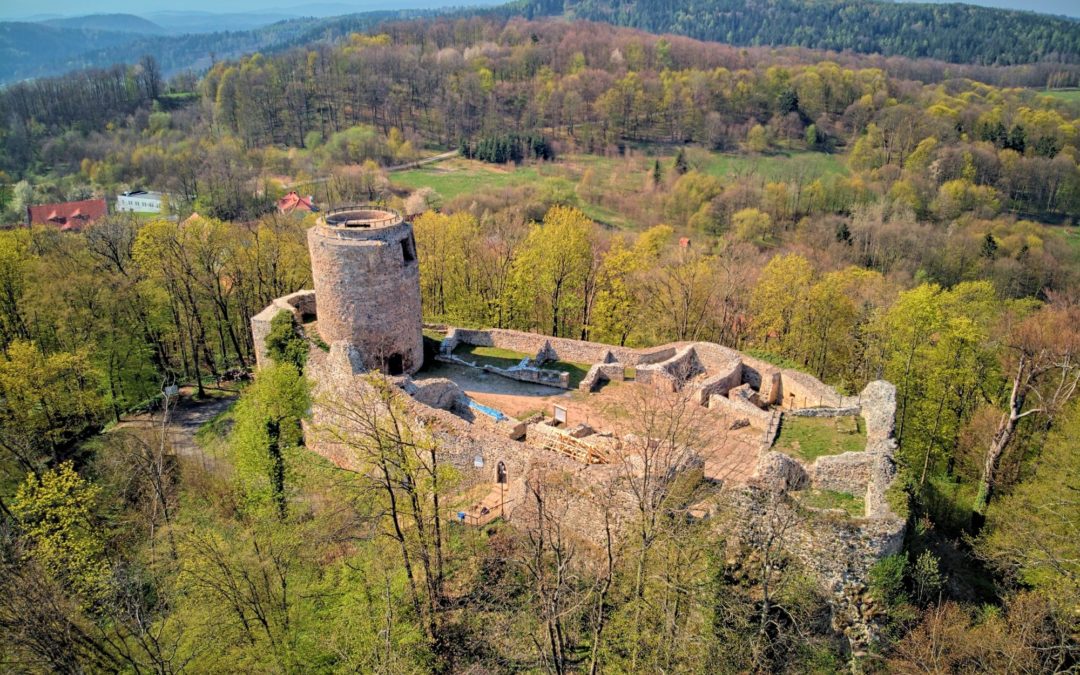With budgets squeezed by the coronavirus crisis, a town in Poland has been forced to mortgage a 12th-century castle in order to pay for a new sewage system.
Lenno Castle, built in 1160 and standing near the western town of Wleń, is one of the oldest castles in Poland and the oldest brick building in the country, reports Wirtualna Polska.
Wieża bergfriedowa na zamku Lenno w fazie późnogotyckiej.oprac. Paweł Rajski, Śląskie Studio Architektury
Opublikowany przez Zamek Wleń / Zamek Lenno Środa, 30 stycznia 2019
The site has become a tourist attraction. However, with the local authorities struggling to raise funds to pay for a new sewage system in the nearby village of Bystrzyca, they put the castle up as collateral to secure a loan.
The value of the mortgage is almost 4 million zloty (€0.9 million). It was agreed with the Provincial Fund for Environmental Protection and Water Management in Wrocław, the nearest large city, in late May and approved by councillors in Wleń in early June.
“The castle is the property of the district, and we are only tenants and have no influence on the activities of the council,” Gracjan Kielijański, of the organisation that manages the site, told Gazeta Wyborcza. “They can even sell the castle.”
“Wleń is being revitalised, and if you do not want to stop this, you have to manage somehow,” he continued. “However, I am not afraid that something bad may happen; I believe that the council has everything under control.”

The town of Wleń viewed from the castle (Zamek Wleń/Zamek Lenno/Facebook)
The latest episode is another chapter in the tumultuous history of the castle, which was constructed on the site of an earlier wooden defensive structure during the rule of Bolesław IV the Curly as High Duke of Poland. It stands atop the 384-metre Castle Mountain, offering commanding views of the area.
The castle was a favourite residence of Hedwig of Silesia, wife of Henryk the Bearded, another High Duke of Poland. She was canonised by the Catholic Church in 1267 and is considered to be a patron saint of Silesia.
The castle was later used for more nefarious purposes, occupied by tyrants and robbers throughout the Middle Ages and early modern period. When Bolesław II the Horned ruled Poland in the 13th century, he imprisoned the Bishop of Wrocław, Tomasz I, and his own nephew, Henryk IV Probus, in the castle’s dungeons.
But the castle was besieged by the armies of both Sweden and the Holy Roman Empire during the Thirty Years’ War in the 17th century. It was set on fire in 1646, and subsequently fell into disrepair, lying in ruin ever since.
The building was in a parlous state by the beginning of the 20th century, and was closed to tourists in 2005 after stones fell off the tower, reports Wirtualna Polska.
However, renovations began in 2009, with 1.5 million zloty of funding provided by the culture ministry and 400,000 zloty from the local authorities. The site reopened to the general public in 2018.
The most popular attraction is torch-lit nighttime tours of the grounds and surrounding woods.
Opublikowany przez Zamek Wleń / Zamek Lenno Piątek, 12 czerwca 2020
Local authorities have promised that tourists will not be affected by the decision to mortgage the castle. They have also sought to downplay concerns from local residents that bailiffs could take possession of the castle.
“Nobody will take the stronghold from us,” said the mayor of Wleń, Artur Zych, quoted by regional news portal NJ24. “It will remain, where it is now, for years to come.”
“The procedure for taking out a mortgage on monuments is nothing new,” said Zych, pointing out that the same thing has happened with Lipowiec Castle near Babice in southern Poland.
Kielijański also hopes that, as lockdown restrictions are being eased, including the reopening of museums and other cultural sites, Wleń may still benefit from some tourism during the summer holiday. The castle reopened at the start of May, with new sanitary measures in place.
Nowa rzeczywistość, to nowe wymogi. Łączymy strój średniowieczny z obowiązkową przyłbicą!
Opublikowany przez Zamek Wleń / Zamek Lenno Piątek, 1 maja 2020
Main image credit: Zamek Lenno/press material

Juliette Bretan is a freelance journalist covering Polish and Eastern European current affairs and culture. Her work has featured on the BBC World Service, and in CityMetric, The Independent, Ozy, New Eastern Europe and Culture.pl.




















